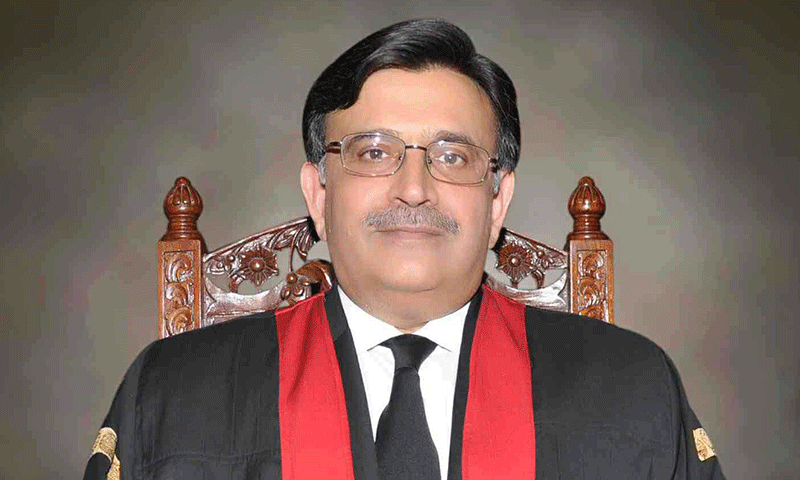Today Tuesday a bill aimed at curbing absolute powers of Chief Justice of Pakistan to constitute benches and take sou moto notice was presented in the National assembly, after being approved by the cabinet today.
The summary in the cabinet for the (Practice and Procedure) Bill, 2023, stated that the exercise of the original jurisdiction by the Supreme court under article 184(3) of the constitution is a subject of discussion at various forums.
The bill was tabled by Law minister Azam Nazir Tarar today in the joint session of the assembly.
The development came after yesterday remarks of two Supreme Court judges — Justice Syed Mansoor Ali Shah and Justice Jamal Khan Mandokhail — raised questions over the unilateral authority of the CJP, saying the apex court “cannot be dependent on the sole discretion of one man, the Chief Justice”.
The two judges remarked that ‘’This court cannot be dependent on the absolute power of the chief justice, this must be regulated by a rule-based system inclusive of all judges of the Supreme court under Article 191 of the constitution, wrote Justice Mansoor Ali shah and Justice Jamal Mandokhail in a dissenting note of 27 pages for the supreme court’s verdict in KP and Punjab elections Sou moto of March 1.
The Law Minister on the floor of the house in today’s proceeding said that the apex court’s reputation was damaged due to the actions taken in the name of suo motu notices.
‘’The dissenting note of the two judges has led to further concern. Decisions taken under suo motu notices could not be appealed earlier’’.
PM Shabaz sharif today while speaking on the floor of the house termed the dissenting note as ray of hope for the future of the judiciary.
The bill passed by the cabinet states that every matter or appeal before the supreme court would be heard and disposed of by a bench constituted by a committee comprising the CJP and the two senior-most judges. It further added that the decisions of the committee would be taken by a majority.
The bill mentions that any matter invoking the use of Article 184(3) would first be placed before the abovementioned committee.
Moreover, the bill also includes a clause regarding the right of challenging the decision which could be filed within 30 days and will then be fixed for a hearing in two weeks’ time.
Meanwhile, in matters where interpretation of the constitutional provision is involved, the committee shall constitute a bench comprising not less than five judges of the apex court.
Today while hearing the petition filed by the PTI against the Election Commission of Pakistan’s (ECP) decision to delay elections in Punjab till October, the top judge of the apex court categorically said that ECP had no authority to extend polls date.
He observed that the “question before the court is a simple one, can the ECP postpone the election date or not”. “If it has the authority to do so, the proceedings will end right there,” he said.





